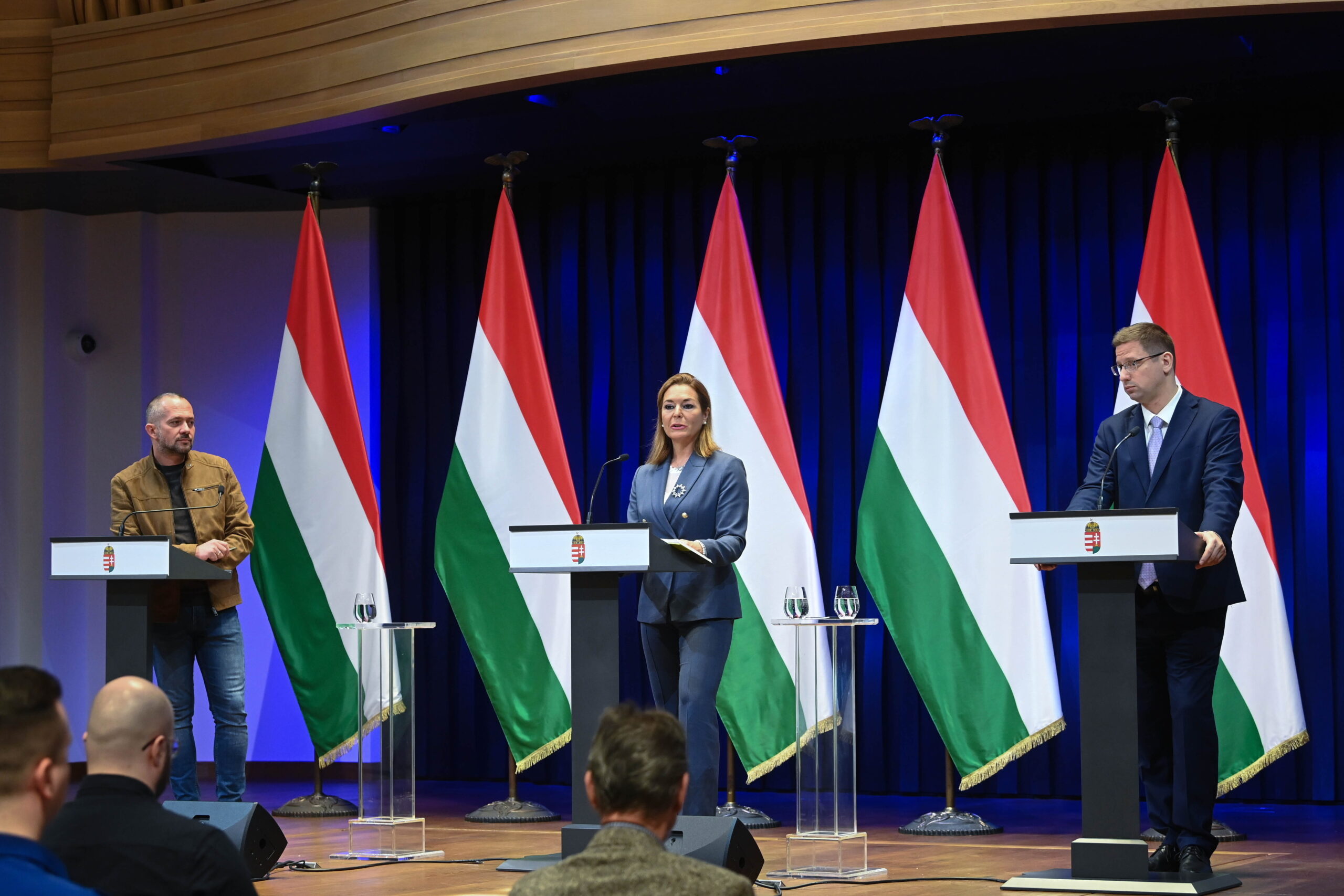
The German MEP known for his hateful remarks against Hungary's constitutional representatives was also stoking the fire.Continue reading

On Thursday morning, the latest measures were presented by Gergely Gulyás, the Minister heading the Prime Minister’s Office, and Eszter Vitályos, Government Spokesperson, at the Government Info briefing. The event was attended by Alpár Gyopáros, Government Commissioner for the Development of Modern Villages, who presented several programs for small settlements.
After Wednesday’s government meeting, Viktor Orbán posted a video on Facebook, in which he spoke about the need to support villages. In light of this, Alpár Gyopáros announced that four new elements are being added to the Hungarian Village Program, of which two are being relaunched and two are new structures.
Shops selling daily necessities, complemented by meat shops, will be supported in all villages with a population of less than five thousand. Operating grants of a minimum of HUF 1 million (EUR 2,495) and a maximum of HUF 3 million (EUR 7,480) are available. Currently, just over 2,000 municipalities do not have an ATM; the government has decided to launch a program this year to provide one in every small town where it is needed. There will also be a church renovation program, in the framework of which hundreds of churches will be renovated. The tavern development scheme will target drinks outlets in settlements of less than 1,000 inhabitants, with operating grants of up to HUF 3 million (EUR 7,480), and energy efficiency investments if required. In addition, there will be further opportunities to apply for the renovation of municipal institutions and the purchase of vehicles this year.
The government heard the new president of the Hungarian Central Bank, Mihály Varga, present his forecast for this year. The government expects inflation to reach 4.5 percent, and the bank has similar views. Therefore, there will be an additional pension increase of 1.3 percent. This will be paid out in November and will amount to HUF 40,000 (EUR 100) for an average pension.
Regarding food prices, Gergely Gulyás said that in light of the margin freeze introduced on March 17, the prices of 874 products had fallen, mainly the prices of pariser salami, milk, flour, and natural yoghurt. On average, they have become 17.4% cheaper. The government is ready to make further decisions if necessary, and the consumer protection agency is constantly monitoring prices.
The minister admitted that some dozens of products have become more expensive because promotions on them have expired – at least according to supermarket chains. The government is investigating whether the losses from the margin freeze are being passed on to consumers.
If they see this happening, they will intervene.
The minister mentioned that several hundred Pride protesters had closed four bridges in the capital this week. He related that
the right of assembly has remained unchanged for decades, in the sense that it must not infringe the rights and freedoms of others. In comparison, a minority of a few hundred people have made it impossible for hundreds of thousands of people to move around normally.
Everyone is obliged to respect the judgments of the courts, but if decisions are made which are contrary to the current legal practice and which contribute to paralysis of traffic, the legislator can react.
Mr. Gulyás was also asked whether there are any plans to tighten up MPs’ access to Parliament, after opposition politicians brought in and lit smoke candles to demonstrate against the amendment of the assembly law. The minister replied that the idea was being considered.
Speaking about the latest outbreak of foot-and-mouth disease, Gulyás said that the latest Hungarian farm where it was detected was a colony of 3,000 animals. All of them have to be killed, restrictions have been put in place around Győr and Mosonmagyaróvár (northwestern Hungary), and epidemiological investigations and contact tracing are ongoing. So far it is thought that the infection may have come from Slovakia. Farmers have to report cases and the damage is still being assessed. Mr. Gulyás said that EU vis major aid was not expected, although it could be requested in such cases. The Slovaks have indicated that they will ask for such compensation from the European Union.
Gulyás remarked on the ongoing investigation by the prosecutor’s office into the accident in Újdörögd, where during an exercise, a hand grenade exploded in the hands of a government official, who lost both hands. The minister said he had spoken to the father and visited the injured woman. The legal regulation is clear, it is like an accident at work, there is a full obligation of compensation from the state. Gulyás has written a letter to this effect, informed the family, and a written undertaking has been given. On liability, he emphasized that until they can say what happened, they cannot say who is liable.
Under a proposal, Hungarian MEPs will have to make the same kind of declaration of assets as Hungarian MPs.
Gulyás pointed out that it was easy to see that the obligation for an MP and a MEP to declare their assets is the same.
Previously, the European Parliament’s asset declaration system was introduced in Hungary, but the European Commission took action against the government over this.
Regarding EU funds, the minister said that more than EUR 3 billion will come in this year, and the remaining money, which is still under discussion, could be coming in 2026-27. Mr. Gulyás stressed that the money would not come in time because it was part of Brussels’s punitive policy against Hungary.
In response to a question, Minister Gulyás also spoke about the situation in Ukraine. He stressed that
Ukraine’s EU accession would cost millions of forints for all Hungarians, and there are also many unanswered questions. One of them is the definition of the territorial unit that would join the EU, as we are talking about a country at war.
But the official survey shows which countries are ready to join, and in the case of Ukraine, it is all red, he said. “For decades we have been talking about merit-based accession, yet now a country that is not ready would be forced into the EU. This is absurd. There are many unanswered questions in agriculture, in the labour market, in the area of cohesion,” he stated.
Featured photo via MTI/Bruzák Noémi